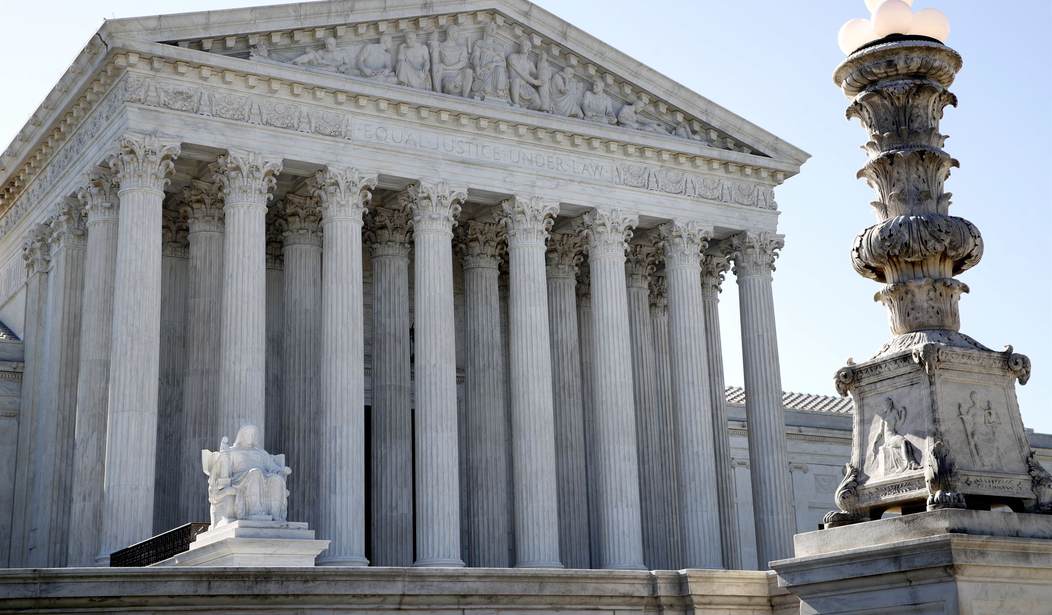Independence Day is more than fireworks and barbecues. It is a wonderful time for Americans to reflect on the true foundations of our great country. Recently, the U.S. Supreme Court has reminded us of one of the most fundamental of those ideas: Americans should not be forced to participate in activities that violate their religious beliefs against their conscience.
As attorney general, it is my duty to prioritize and defend the rule of law, including our constitutional rights. Over the past few years I have been closely engaged in several legal cases that touch at the heart of Americans' fundamental right of freedom of speech.
Last week the Supreme Court ruled in favor of the National Institute of Family and Life Advocates (NIFLA) by striking down a California law that required crisis pregnancy centers to provide information on abortions, a position that was contrary to their religious beliefs. The Court found that California lacked justification to force pro-life entities and counselors to speak a message with which they disagreed. The Court, therefore, invalidated California's attempt to force pregnancy centers--entities specifically set up to provide an alternative to abortion clinics--to post large advertisements providing information on the existence of free and low-cost abortions.
Likewise, in Masterpiece Cakeshop v. Colorado Civil Rights Commission, the Supreme Court criticized and ruled against a state agency that appeared to be penalizing the thoughts and speech of religious persons. It found that Colorado's Civil Rights Commission failed to give consideration to the religious-based reasons that prompted a baker to refuse to design and bake a cake for a same-sex wedding. Since the baker designs cakes for LGBT clients for occasions other than marriage, the Court found the Civil Rights Commission to be unnecessarily hostile to and dismissive of the baker's religious objections.
Recommended
Justice Kennedy's majority opinion was particularly concerned that the baker's religious reason for refusing to design a cake for a same-sex wedding was treated more harshly than the Commission treated non-religious reasons for not designing cakes given by other bakers in other cases. The Court found that the differing standard of the Colorado Civil Rights Commission disfavored religion and persons of religious conviction.
The lessons that emerge from these cases are the same lessons about our Constitutional rights taught in civics classes around the country. Each of these cases is about liberty of conscience--the inability of the government to dictate how citizens think and feel without punishment for believing something different than others believe.
Retiring Justice Kennedy, in one of his final concurrences, scolded the California Legislature for its self-proclaimed "forward thinking" by forcing individual speech and beliefs. He suggested the state gain historical perspective on the Founders' foresight for the First Amendment created during a time of suffocating "authoritarian regimes." Ultimately, a liberal state's policies should never insult the beliefs of religious persons and require such persons to act contrary to those beliefs in a misguided attempt to purify society of such beliefs.
Based on its decision in Masterpiece, the Supreme Court has already sent another religious liberty case, in which I led a multi-state supporting effort, back to the Washington Supreme Court to reconsider. Arlene's Flowers is facing massive state fines for refusing to design unique and artistic floral arrangements for a same-sex wedding despite the owner's history of serving LGBT customers for other occasions.
The state Supreme Court's decision to punish the owner for refusing to use her artistic talents to celebrate a message that violates her religious beliefs should meet with the same fate as the state of Colorado's position in Masterpiece. I similarly led another multi-state effort to support a small business owner of faith in Kentucky. In that case, Hands-On Originals, a small family-owned T-shirt company, is being punished by the state for refusing to design shirts supporting a gay pride parade. Thus far, the owner has prevailed, and it is my hope that after Masterpiece, the Kentucky Supreme Court will rule that the state may not force a person to write something that conflicts with his or her core beliefs.
Each of these cases is about conscience, the ability for a person to refrain from doing or speaking against deeply held beliefs. These cases are not about same-sex marriage or LGBT rights. No one thinks it would be acceptable for a state to force someone to make a proclamation of faith. Why should anyone be forced by a state to make a proclamation that is in opposition of their faith?
I am proud of these recent victories as they underscore our founding principles to ensure liberty for all Americans. Protecting opposite viewpoints — even when we disagree with them — is as important now as it was on that first Independence Day.
Editor's note: This column first published in the Arkansas Democrat-Gazette.
Leslie Rutledge is the attorney general of Arkansas.

























Join the conversation as a VIP Member